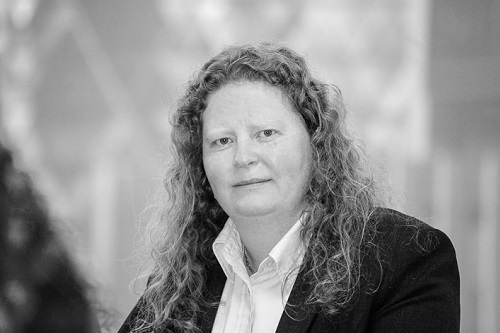Fraudsters never waste a good crisis

Adele Sumner, RSA’s Head of Counter Fraud and Financial Crime, recently spoke at an industry event about the rise of the pandemic fraudster. Many of you will have heard the phrase ‘never waste a good crisis’ over the last few months. Fraudsters have been embracing this mantra with great energy to create new and increasingly clever ways of taking advantage of people and businesses.
This article summarises some of the trends Adele and her team have noticed in 2020.
The Long and Short of it
Risks have increased rapidly during the pandemic, and trends and events that were less common have become more prevalent. In March, the government’s Counter Fraud Cabinet Office issued a text which describes how, in times of emergency, fraudsters increase their activity. As a result, RSA commissioned an extensive piece of work to map out the risks that could change in the short, medium and long-term. This project looked at existing risks which could increase as well as new threats arising from the pandemic. This was for both individuals and businesses.
At RSA we have put in place a strategic plan to manage these risks. Here are a few specific examples we wanted to share.
Personal protection
For most of us, work has undergone a change that was unthinkable in 2019. We are now increasingly living our lives in the virtual world, with webinars and video calls becoming everyday events. This has meant downloading new apps, logging into new systems and generally creating more opportunities for our details to be harvested and used by people unknown to us.
Do you always use the same email address and password? Are these the details that you use for your banking? Do you use the same details for your email account? If criminals compromise your email account, they may have access to a huge amount of your personal data which can then be used over time. The importance of unique passwords has never been higher. For each new app, make sure you have separate passwords and never use the same one as for your email or bank accounts.
The man in the middle
Everyone should make sure they are personally secure. With the right defences in place, attention should turn to businesses and the workplace.
The ‘man in the middle’ is the term given to criminals who intercept both personal and business emails with a view to changing details. An email with invoice can be intercepted and the bank details changed. This means that companies making payments could be unwittingly sending money directly to the fraudster and not the intended recipient. Recovering money sent in this way is notoriously difficult.
There have been new scams designed to secure email information. One recent example reported a fraudster joining a video call between three companies representing a risk manager, a broker manager, and an account manager, where they talked about payment of premium income. The arrangements for payment were discussed and the criminal was able to create an email which included payment details to a fictitious account rather than that of the insurance company.
Covid risks and transmission claims
It is anticipated that a number of individuals will seek to make COVID transmission claims, based on poor PPE, or proximity to others due to inadequate social distancing measures. In addition, as the economic conditions become more difficult and redundancies occur, there is an increased risk that employees and ex-employees will make claims. Are you providing your staff with all they need to work from home? Do you have the right PPE equipment? Could they be at greater risk of getting back problems and RSI without the right equipment?
People you would not expect to get involved in speculative insurance claims could be driven to act in a different way. Companies need to review their risk management strategy. Have you re-assessed your risks this year?
Where to start
In her presentation, Adele said that she’d worked in fraud prevention for over 20 years and never been bored.
“Every day is different. As we create new ways to protect ourselves, criminals come up with new ideas for taking people’s money. Fraudsters are the best at business diversification and they keep my life interesting!”
Adele’s message at this moment is to focus on three critical areas:
- Protect yourself – think about your passwords. If you receive a communication and are concerned then ignore it.
- Challenge – it if you’re unsure, challenge the sender.
- Educate yourself – look at the many different sources of information to help you keep up to speed about ways to increase protection.
If you want to know more, please contact your usual RSA Representative or CLICK HERE, leave a message and youTalk-insurance will pass your enquiry on.
About RSA
With a 300-year heritage, RSA is one of the world’s leading multinational insurance groups.
Today, RSA employ around 23,000 people, serving 17 million customers in around 140 countries. While RSA's origins lie in London, RSA is a global company with businesses in both mature and emerging markets. RSA have major operations in the UK, Ireland, Scandinavia, Central and Eastern Europe, Canada, Asia, the Middle East and Latin America. youTalk-insurance sharing insurance news and video.

